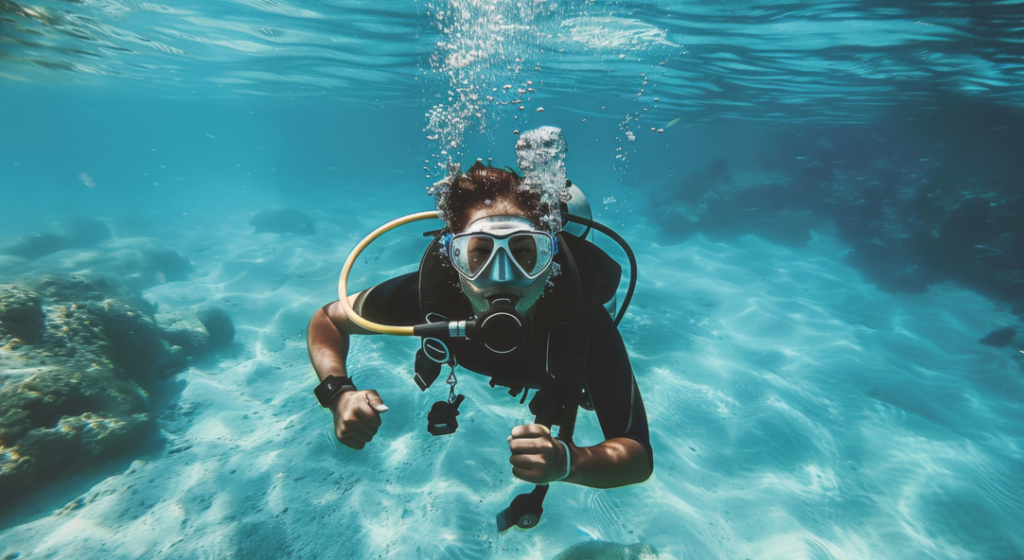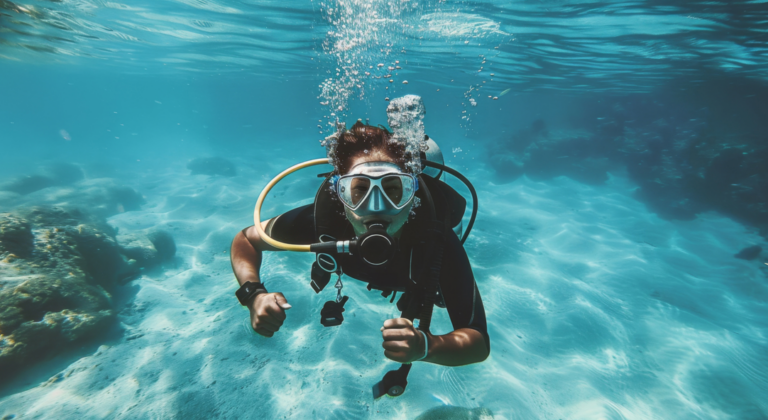A career in saturation diving is not for the timid. Extreme physical demands, dangerous working conditions, and technical know-how combine to make this industry one of the highest paying for divers. For those who choose this route, the financial rewards can be extraordinary, but the pay can vary greatly based on the diver’s experience, the location, and the depth of the work.
A saturation diver who is just starting out can anticipate earning between $50,000 and $80,000 per year. These entry-level positions are frequently less demanding and have shorter contracts. Compared to their more experienced counterparts, these divers typically concentrate on simpler tasks and work in environments where they have little experience. However, because of the specialized nature of their work, even these divers receive relatively good compensation despite being new to the industry. After receiving training, saturation divers are dispatched to work offshore, where they must complete challenging tasks at extreme depths. As these divers gain more experience and take on more challenging roles, they frequently see quick pay increases.
The pay range increases significantly for divers with more years of experience, usually ranging from $80,000 to $150,000 per year. Divers operate in some of the most hostile and remote locations, including the North Sea, offshore oil rigs, and other hazardous settings, making the job increasingly specialized. The intricate nature of the work and these settings necessitate highly skilled workers who can function under extreme pressure. Divers who assume leadership positions or focus on particular skills, like deep-sea construction or underwater welding, can make significantly more money than the average.
Divers can earn over GBP £1,500 per day in some places, particularly in the North Sea, thanks to pay agreements like the ODIA/RMT pay rate. The most seasoned and proficient divers are eligible for this pay rate because they must stay underwater for extended periods of time—up to 28 days at a time—without coming up for decompression. This job, which offers amazing financial and professional rewards, is a calling for many people. However, the work requires mental toughness in addition to physical endurance. Divers work in high-pressure settings where accuracy and a keen sense of their surroundings are essential for every task.
Even though the pay is unquestionably alluring, there are drawbacks to it as well. Given that divers spend their shifts in stressful environments, the work can be incredibly isolating. The harshness of the deep-sea environment and the isolation can have a negative psychological impact. Significant pressure saturation is experienced by divers as a result of long hours, a lack of direct family contact, and the strain of working at such great depths. However, a lot of divers believe that the special chances and monetary gains outweigh these difficulties.

| Category | Salary Range | Notes |
|---|---|---|
| Entry-Level Saturation Diver | $50,000 – $80,000 | Shorter contracts and less demanding roles, with basic tasks. |
| Experienced Saturation Diver | $80,000 – $150,000+ | More specialized work in challenging environments, longer contracts. |
| North Sea Saturation Diver (ODIA/RMT Pay) | GBP £1,500/day+ | Premium rates for high-risk, offshore work, and extended dives. |
| Saturation Diver with Specialization | $120,000 – $200,000+ | Expert divers in specific fields like underwater welding or research. |
| Overtime/Depth Pay | Varies, additional pay for deeper dives | Higher compensation for extended work hours or exceptional dive depths. |
The great skill set needed to execute these intricate underwater operations is what makes saturation diving so alluring, not just the money. Nitrogen narcosis, a hazardous condition brought on by the high pressures of deep-sea diving, is avoided by divers using specialized equipment to breathe in a helium-oxygen mix. Additionally, they work in specially pressurized chambers that prevent decompression sickness after each dive, enabling them to remain at depth for extended periods of time. Saturation divers can live in pressurized environments and continue working far below the surface for as long as 28 days at a time. Only the most experienced divers take on these potentially fatal tasks because this style of diving necessitates extensive training and certification.
However, one of the main things that draws people to saturation diving is unquestionably the financial reward. As they get more experience and take on riskier tasks, many divers, particularly those working in high-risk areas, can see a significant increase in their income. For instance, North Sea-based divers who work in underwater construction or oil extraction frequently receive higher pay. The high expenses of offshore operations and the requirement that divers complete crucial tasks alone are partially to blame for this.
The complexity of the work affects the pay as well. Because these jobs are more specialized, divers who specialize in things like underwater welding or salvage operations frequently make more money. These divers may receive bonuses in addition to their regular pay if they meet predetermined goals, like making a certain number of dives or hitting particular milestones. Divers are clearly encouraged by this structure to advance their careers and take on increasingly difficult roles.
A saturation diver’s work is truly amazing because it combines extreme technical proficiency with the capacity to function under extreme mental and physical strain. The financial and personal rewards are substantial for those who are willing to put in the effort. The sense of accomplishment that comes from working in some of the most harsh environments on Earth is unmatched, despite the physical difficulties and isolation of the job. Saturation divers are essential to many industries that influence the modern world, whether they are repairing underwater oil pipelines, conducting research in unexplored waters, or carrying out salvage operations at great depths.



